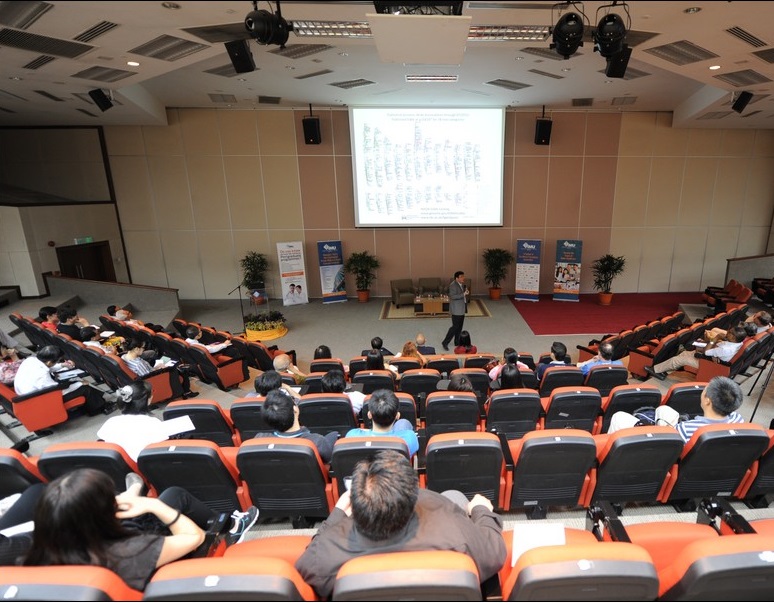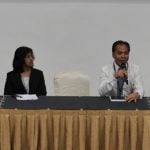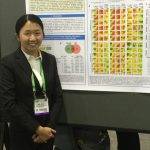Have you ever wondered: What if we can predict any disease before it is manifested? What if you possess a genetic makeup that makes you prone to certain cancer? What if the treatment can be tailored based on the biology of individuals? Or what if we can treat diseases based on molecular mechanisms rather than symptoms? The Institute for Research, Development and Innovation (IRDI) of International Medical University (IMU) organised a talk for the public on “Future of Medicine: Personalised Medicine – How your genes will affect the treatment of diseases?” The talk was held on 11 April 2015 at the University’s campus in Bukit Jalil, Kuala Lumpur. 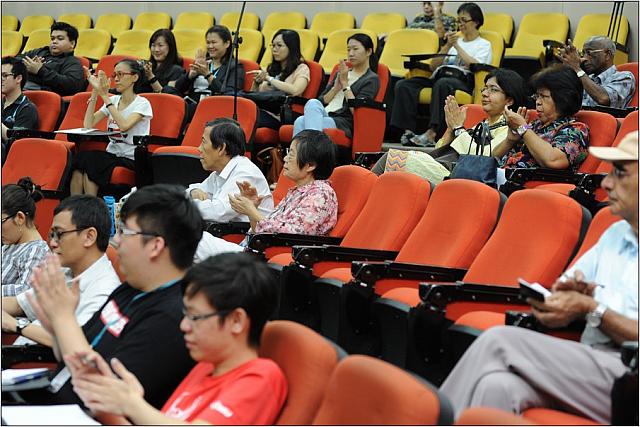 New development in medical science and technology has increasingly allowed healthcare providers to deliver care tailored to individual patients based on their genetic makeup and other “personalised” information. This emerging field of personalised medicine promises to change everything from the way drugs are developed and medicines are prescribed to the way patients interact with healthcare providers. While there have been current success stories, the real potential of personalised medicine lies in the future, not the present.
New development in medical science and technology has increasingly allowed healthcare providers to deliver care tailored to individual patients based on their genetic makeup and other “personalised” information. This emerging field of personalised medicine promises to change everything from the way drugs are developed and medicines are prescribed to the way patients interact with healthcare providers. While there have been current success stories, the real potential of personalised medicine lies in the future, not the present. 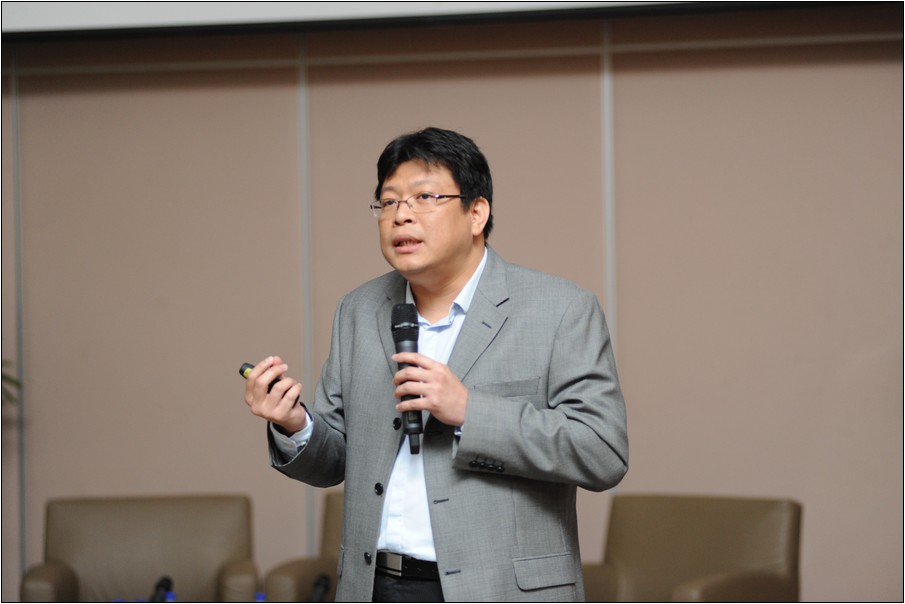 This talk brought together thought leaders to discuss emerging fields of personalised medicine and how personalised medicine will shape the healthcare of tomorrow. The three speakers for this talk were Prof Leong Chee Onn, Dr Wong Chin Hoong and July Lee. Prof Leong Chee Onn, who is presently a Professor at IMU and the Head of the Centre for Cancer and Stem Cell Research, IRDI, explained that the genome consists of the bank of all genetic details in our body. He highlighted that the advent of gene sequencing has enabled tailored approaches to individualised care and disease prevention based on the patient’s genetic makeup. Dr Wong Chin Hoong, a medical doctor and lecturer who teaches family medicine at the undergraduate and postgraduate level in IMU, narrated the uniqueness of personalised medicine applied to different individuals and discussed cost and ethical issues related to personalised medicine.
This talk brought together thought leaders to discuss emerging fields of personalised medicine and how personalised medicine will shape the healthcare of tomorrow. The three speakers for this talk were Prof Leong Chee Onn, Dr Wong Chin Hoong and July Lee. Prof Leong Chee Onn, who is presently a Professor at IMU and the Head of the Centre for Cancer and Stem Cell Research, IRDI, explained that the genome consists of the bank of all genetic details in our body. He highlighted that the advent of gene sequencing has enabled tailored approaches to individualised care and disease prevention based on the patient’s genetic makeup. Dr Wong Chin Hoong, a medical doctor and lecturer who teaches family medicine at the undergraduate and postgraduate level in IMU, narrated the uniqueness of personalised medicine applied to different individuals and discussed cost and ethical issues related to personalised medicine. 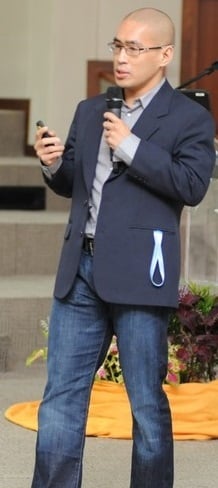
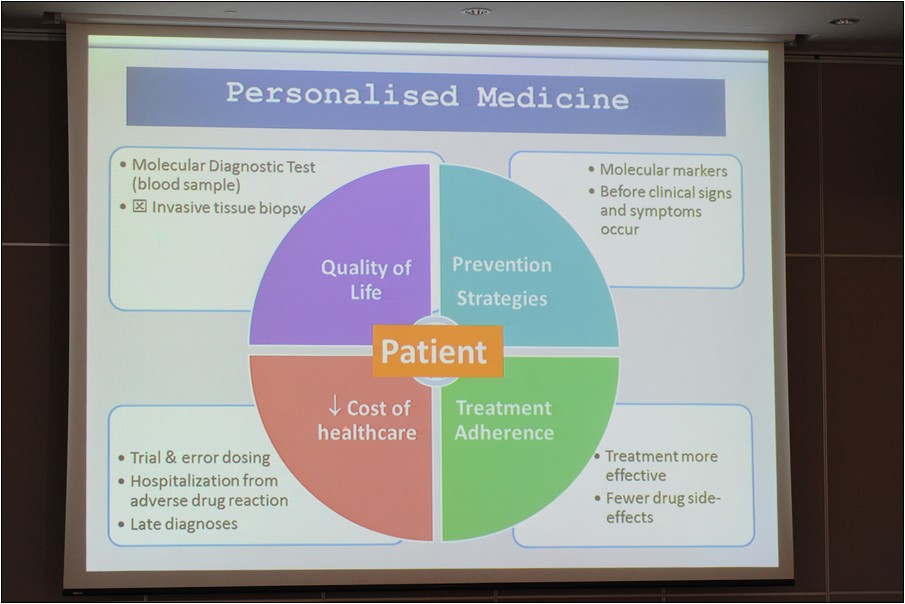
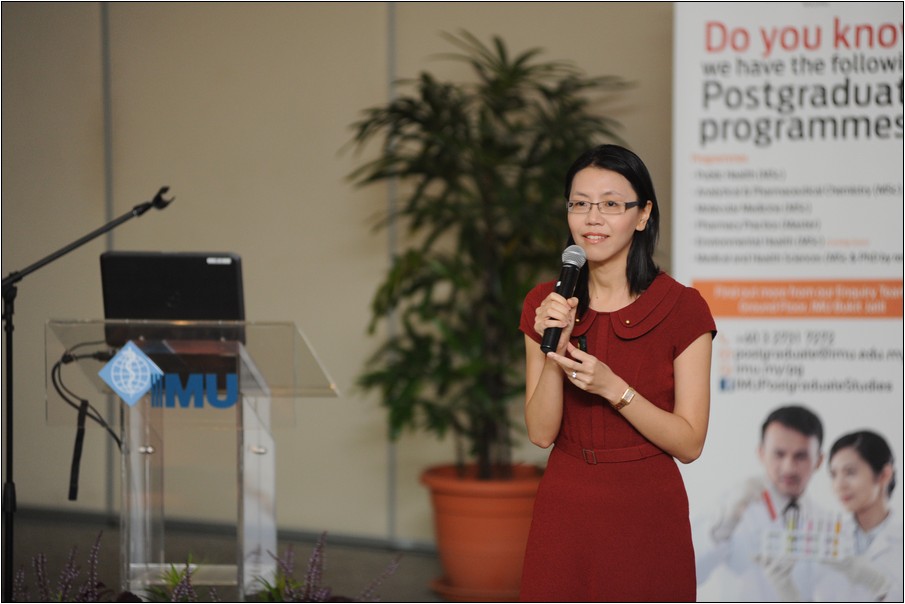 Meanwhile, July Lee, who is a registered pharmacist and currently a lecturer in IMU, had also highlighted how genes affect a person’s response to drug. Thus, the effective dose of drug that should be prescribed may vary with individual. The recently concluded public talk was the first event under the Future of Medicine Series organised by the Institute for Research, Development and Innovation (IRDI) of IMU, which aimed to enhance awareness amongst the public of new development in medicine and scientific research. This talk had received good response whereby 58 attendees inclusive of 38 members from the public turned up for the talk.
Meanwhile, July Lee, who is a registered pharmacist and currently a lecturer in IMU, had also highlighted how genes affect a person’s response to drug. Thus, the effective dose of drug that should be prescribed may vary with individual. The recently concluded public talk was the first event under the Future of Medicine Series organised by the Institute for Research, Development and Innovation (IRDI) of IMU, which aimed to enhance awareness amongst the public of new development in medicine and scientific research. This talk had received good response whereby 58 attendees inclusive of 38 members from the public turned up for the talk.




